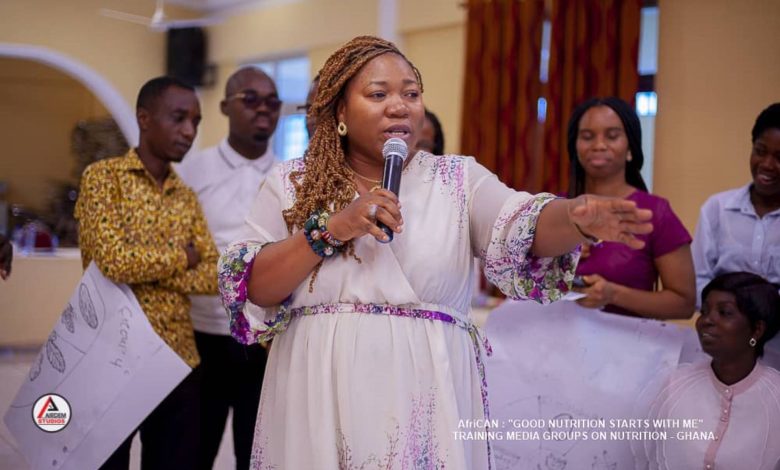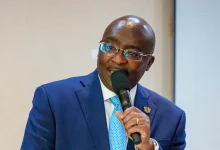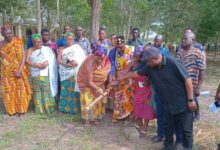
AfriCAN Trains Journalists On Nutrition In Ho
Africa Catalyzing Action for Nutrition (AfriCAN), a network of advocates, champions, and experts, united in its commitment and passion to move Africa’s nutrition agenda forward, organized a three-day workshop for journalists on Nutrition from Monday 8th to Wednesday 10th April under the theme: ”Good Nutrition Starts With Me.”
The training was to empower the news reporters so that they could educate, inform, and assist communities to become ”Nutrition Literates” by way of improving their nutrition situation individually and collectively.
The workshop served as a platform to sensitize the participants about AfriCAN’s mission and vision and establish partnerships with the youth and the media for sustainable nutrition initiatives. The AfriCAN approach, therefore, is to inform, educate, advocate, and inspire action at all levels.
Journalists were taken through several sections of nutrition-related topics such as Food System, Nutrition and Climate change; Malnutrition, types, causes, and consequences; Nutrition throughout the life cycle
Prevention and Management of diet-related Non-communicable Diseases(NCDs); Production, processing, and preservation; Understanding and promoting a healthy diet; Water, Sanitation, and Hygiene.
Professor Francis Zotor, the Trustee and the Country Director of AfriCAN, introduced journalists to Nutrition Throughout The Life Cycle, and Water, Sanitation and Hygiene (WASH). The journalists became familiar with some basic nutrition terminologies, making them understand the basic nutrition requirements of vulnerable populations
According to him, nutrition requirements vary across the lifecycle, including pregnancy, childhood, adulthood, and old age due to physiological differences. ”Access to nutritious foods is hindered by various factors such as physical, social, cultural and economic challenges,” he added.
Touching on communal and personal hygiene, Prof. Zotor said statistics show that globally, over 700 children under age 5 die every day of diarrhoea due to a lack of appropriate WASH practices. He said, that in Ghana, data has shown that 76% of households are at risk as they depend on water contaminated with fecal matter for drinking. ”The UN Sustainable Development Goal (SDG) calls for universal access to Water, Sanitation, and Hygiene (WASH) globally by 2030,” he added.
Mrs. Cathrine Adu Asare, a Nutritionist with the Ghana Health Service, handled the participants through ‘Understanding and Promoting a Healthy Diet’ and ‘Prevention and Management of Diet-related and Non-Communicable Diseases (NCDs).’

The participants learned basic nutrition concepts, described sources and functions of nutrition, described the main food groups and the concept of a healthy diet, classified common foods into different food groups, and also understood and appreciated the importance of indigenous foods.
According to her, over the last 20 years, developing countries have faced profound changes in eating habits and lifestyles. ”Malnutrition statistics, according to Ghana Health Service, shows that Children under age 5 are 20% stunted, 6% wasted and 11% underweight, over 40% of women overweight or obese” she said.
She noted that the World Health Organization reports reveal that every year Non-Communicable Diseases(NCDs) kill 41 million people accounting for 74% of all deaths worldwide. 86% of these deaths occurred in low- and middle-income nations.
Ms. Roseline Delali Ashigbi, a farmer and nutritionist, helped the participants understand the concept of production, processing, and preservation of agricultural products.
Dr. Nutifafa Glover, a nutritionist under the Ghana Health Service also taught the participants about the concept of malnutrition – the types, causes, and consequences, and also prevention and management.
Participants were taken through daily group assignments to test their understanding. They performed a role play at the end of the three-day course.
The AfriCAN team led by Prof. Francis Zotor expressed their excitement about the comportment of the participants and their willingness to learn to become the ambassadors of change in nutrition-related issues in their communities and their media outlets.







